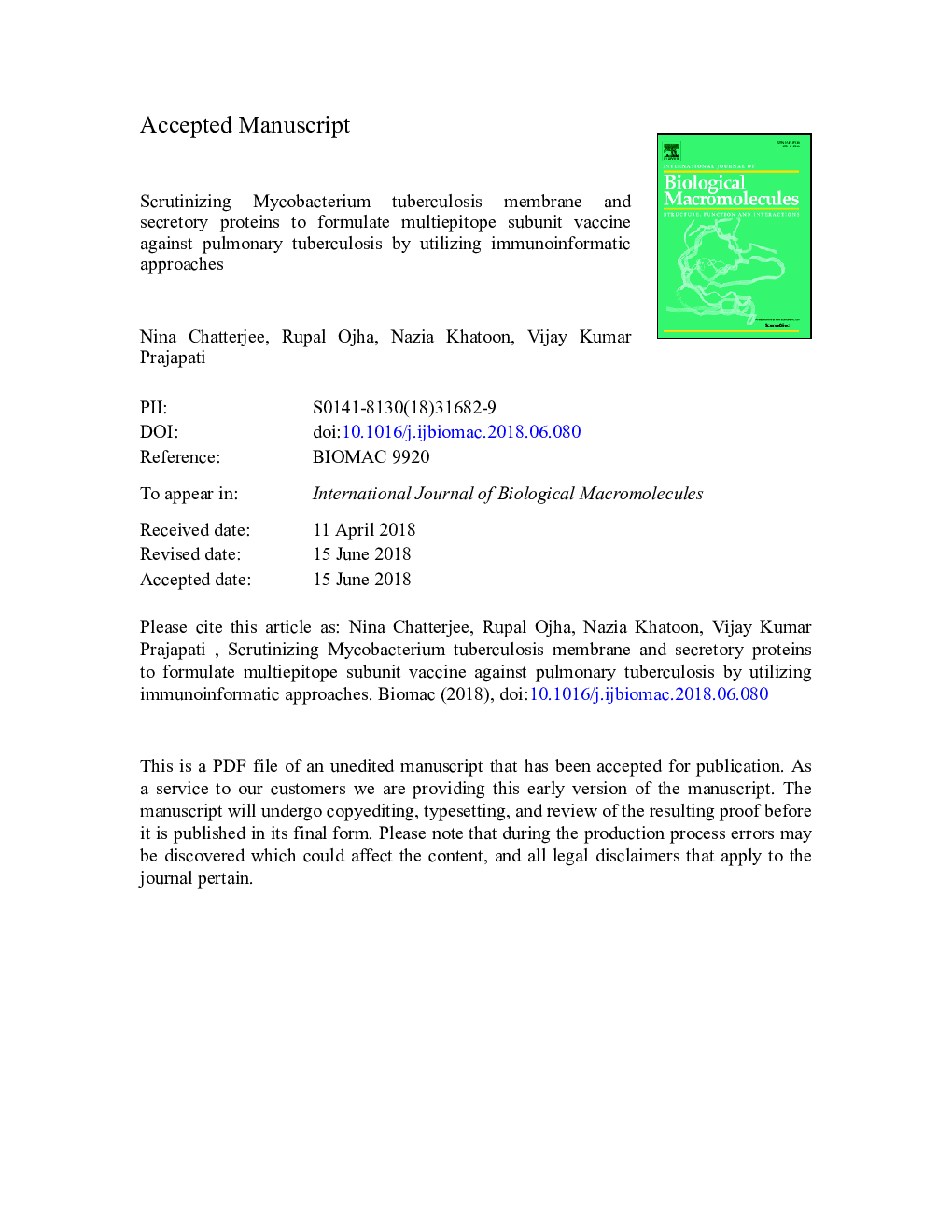| Article ID | Journal | Published Year | Pages | File Type |
|---|---|---|---|---|
| 8326739 | International Journal of Biological Macromolecules | 2018 | 36 Pages |
Abstract
Tuberculosis is a menacing disease caused eminently to the people inhabiting the tropical and sub-tropical nations. A holistic approach is required to generate T and B memory cells to effectuate a long-term exemption from the pulmonary tuberculosis. In this study, immunoinformatic approaches were used to design a multi-epitope-based subunit vaccine for pulmonary tuberculosis which may improve human immune system. The various B-cell, TH cell and TC cell binding epitopes were predicted for selected 2 membrane and 12 secretory proteins of Mycobacterium tuberculosis. The final vaccine construct was assembled by merging the predicted epitope sequences and an adjuvant at the N-terminal of the construct. Furthermore, the physiochemical characterization was done to check the molecular weight, aliphatic index, theoretical PI, hydropathicity and thermostable nature of the designed vaccine. The construct was a potential antigen while wasn't allergenic in nature. Tertiary modeling was performed, by filtering them a refined model was chosen and was docked with TLR-4 (immune receptor). Molecular docking and dynamic simulation was performed and the microscopic interaction between the vaccine construct (ligand) and TLR-4 receptor complex was verified. In silico cloning was used to fortify the expression and translation efficiency of the vaccine within an expression vector.
Keywords
Related Topics
Life Sciences
Biochemistry, Genetics and Molecular Biology
Biochemistry
Authors
Nina Chatterjee, Rupal Ojha, Nazia Khatoon, Vijay Kumar Prajapati,
